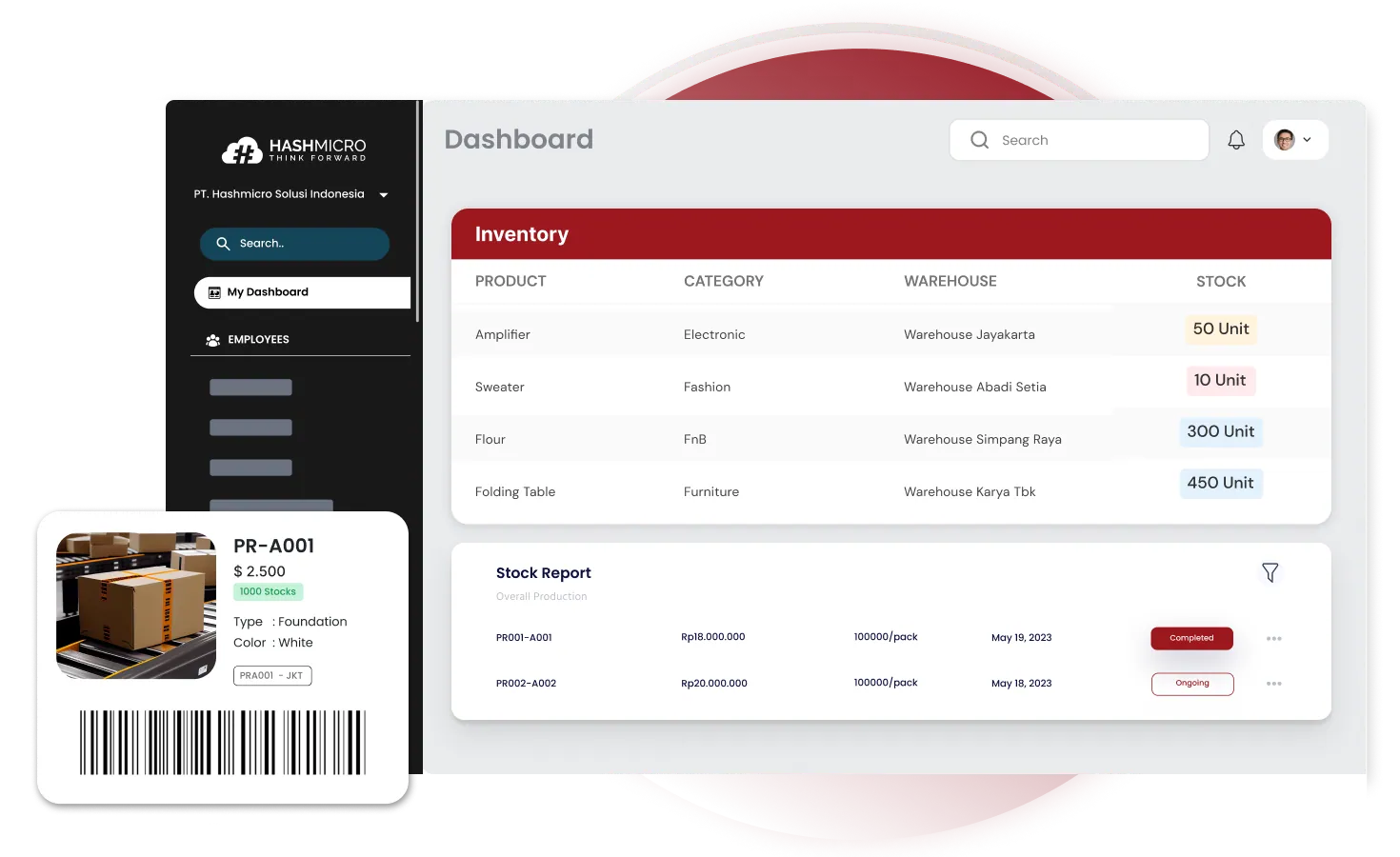Inventory shrinkage, from theft to spoilage, can have a significant impact on your bottom line. In Singapore’s competitive market, ensuring your assets stay protected is key to maintaining cash flow.
Hence, in order for you to prevent inventory shrinkage, you need proper inventory management strategies. One of them is integrating your inventory management with Inventory management software to optimize your operational business processes.
Inventory software is a tool that can process data, including estimating the value of all objects owned by the office, business, firm, and so on. Therefore, inventory applications are the best solution for every business owner, both small and large. Not only does it take up space, but slow-moving inventory also ties up your capital and leaves you with fewer funds to invest in your business. Integrated inventory software helps in overcoming this problem. You can also find out about the Inventory management pricing scheme calculations to help you decide which one suits best your company. So, here are six ways you can implement to keep your inventory safe.
Table of Content:
Table of Content
Key Takeaways
|
1. Find the Right Person to Manage Your Inventory
Choose one of your staff to act as an inventory manager. The person responsible for your inventory must understand the ins and outs of inventory management. They should be able to provide in-depth inventory reports, including the stock quantity, incoming and outgoing stocks, depreciation, stock valuation, etc.
The inventory manager is also responsible for handling inventory audits, purchase orders, and so forth. To choose the right person to do this job, you can use HRM software to asses employee performance. This software allows you to perform assessments with trackable indicators. As a result, you will find staff with the right inventory manager criteria.
2. Optimize Your Warehouse & Store Security
One of the most effective ways to prevent inventory shrinkage is by improving security in your warehouse and store. Security improvement is crucial, especially if you have a large store that holds large amounts of stock. Install CCTV cameras around your warehouse and store corridors.
Use a digital door lock and provide access to the warehouse only to those responsible for the inventory. Additionally, integrating a POS system can help track sales and inventory movements in real time, making it easier to detect discrepancies and reduce the risk of shrinkage.
3. Create a Barcode & SKU Number for Each Item
Barcodes and SKU numbers on your items are very helpful for inventory tracking. Labeling your items helps ensure all items are well recorded, thus avoiding inventory loss.
To make it easier for you to track your inventory and generate barcodes, consider using a barcode inventory system that is integrated with barcode scanners and an inventory management system.
4. Keep Track of Your Inventory Levels
Monitoring inventory levels periodically can help you reduce inventory shrinkage. Set the minimum level of your inventory. If the number is close to the minimum level, that means you must reorder immediately.
Make sure you don’t order too many items since storing excess inventory can lead to damage, decay, obsolescence, and more issues. Therefore, we highly recommend that you conduct inventory forecasting to help you determine the right amount of purchases.
5. Conduct Regular Inventory Audit Procedures
You should never forget inventory audits on your agenda. Compare the number of stocks available in physical locations such as in the warehouse or store with the number of stocks recorded in your accounting system.
This method is also called stocktaking. Make sure there are no differences between the physical inventory count and the accounting records. There’s no specific time to undertake inventory audits, so you can do the procedures whenever necessary.
6. Prevent Inventory Shrinkage by Automating Your Inventory Management
There is no more effective way to prevent inventory shrinkage than automating your inventory management. Manual inventory tracking is very inefficient. This will certainly hamper your business operations and can even cause losses.
Moreover, for best results, we strongly recommend that you use cloud-based inventory software. It helps you keep track of your inventory levels, speed up purchasing processes, control procurements, generate real-time inventory reports, and much more.
By automating your inventory management, you can significantly reduce the risk of shrinkage and improve overall efficiency.
Optimize Your Inventory Management with HashMicro Software
Managing inventory efficiently is key to preventing losses and optimizing business operations. HashMicro’s Inventory Management System offers a smart, automated solution that helps businesses track stock levels in real time, minimize human errors, and streamline their supply chain.
Trusted by over 2,000 clients, HashMicro can be your ultimate solution for optimizing inventory management. Book a free demo now to experience its superior features firsthand.
Berikut adalah fitur utama HashMicro inventory management software yang dapat membantu bisnis Anda:
- Barcode configuration: Easier item tracking with barcodes and QR codes on each product and location.
- Putaway Strategy: A system that automatically recommends the placement of items in specific locations to reduce human error. It can also suggest alternative locations if the default space is full.
- 3D Warehouse Overview: Allows users to see stored products and their quantities in specific locations. This feature enhances inventory tracking and spatial organization.
- Warranty Module: Product Warranty & Expiry Tracking with automatic reminders and reports
Conclusion
Inventory level management is one of the most important factors for the smooth operation of your business. Businesses can adopt inventory management software to optimize stock management. Furthermore, his software helps you monitor inventory levels, control procurement, accelerate orders to suppliers, create complete inventory reports, and much more. Choosing inventory management software that is integrated with barcode scanners will help you accelerate inventory tracking.
Finally, you can choose the right ERP vendor after calculating the ERP software pricing scheme. Tell us about your type of business and industry and we will offer you the best business solutions. If you want to get a free demo of our tour product, click here!
FAQ About Inventory Shrinkage
-
What is Inventory Shrinkage?
Inventory shrinkage refers to the loss of stock that occurs when the actual inventory count is lower than the recorded amount in a company’s system. This can be caused by theft, damage, spoilage, administrative errors, or supplier fraud. It directly impacts profitability by increasing costs and reducing available stock for sales. To minimize shrinkage, businesses implement strategies like security measures, regular audits, and efficient inventory management practice.
-
How is inventory shrinkage recognized?
Inventory shrinkage is recognized by comparing recorded stock levels with actual physical inventory. Businesses typically identify shrinkage through regular stock audits, cycle counts, and financial reports. Discrepancies may indicate theft, damage, mismanagement, or administrative errors. Advanced inventory tracking systems, barcodes, and surveillance can help pinpoint the causes. If shrinkage exceeds industry benchmarks, businesses investigate further to implement preventive measures.
-
What is cause the shrink?
The main causes of inventory shrinkage are theft (both internal and external), administrative errors (such as miscounting or incorrect data entry), supplier fraud, and damage or spoilage of goods. These factors lead to discrepancies between the recorded stock and the actual inventory, affecting a business’s profitability. Implementing preventive measures, including improved security, better stock management, and regular audits, can help reduce these issues.

























































